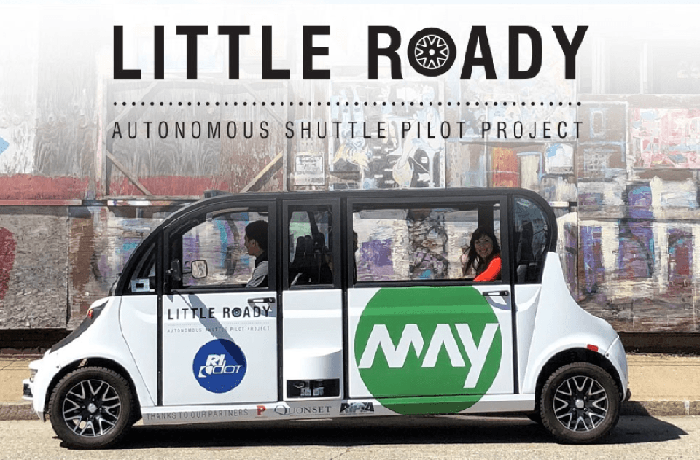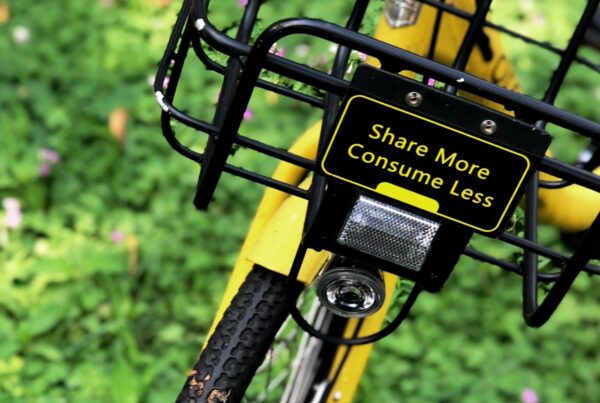Welcome to the Shared-Use Mobility Center’s weekly guide to the most impactful news, thought-provoking articles and innovative technologies that are shaping our transportation future. We believe in sharing information, just like sharing cars, bikes, and scooters, so if there’s anything additional you’d like to see, just drop us a line.
Announcements
Space is filling up fast for the Shared-Use Mobility Center’s TRB Reception
We’re already selling our for out sixth annual TRB reception on January 12, 2020, at DC’s Baby Wale. Is it the great drinks and apps? The chance to network with hundreds of colleagues from across the country while listening to short, exciting presentations from SUMC and reception-sponsor VIA? Yes, yes and yes. RSVP today before we sell out!
Planning your calendar? Register now and plan to shape the future of transportation.
National Shared Mobility Summit
March 17 – 19, 2020 | Hyatt Regency McCormick Place, Chicago
From day one, the Shared Mobility Summit is the premier event to learn about the latest developments across sectors and industries, dialogue with your peers, and hash out tomorrow’s solutions. For 2020, we’ve expanded just about everything: more pre-conference workshops, more cutting-edge breakout sessions, and more places to meet, network, and make lasting partnerships. Don’t wait to register, early-bird prices are only available for a limited time.

 New on the MOD Learning Center
New on the MOD Learning Center
Get insight into how shared, electric and autonomous vehicles can meet public transportation needs with this case study of the Little Roady Pilot Project. Using 6-passenger electric vehicles operating autonomously on a continuous 5.3-mile loop in Providence, Rhode Island (RI), the program is providing first/last mile service, connecting two neighborhoods who need better mobility access, testing the public’s comfort with AVs, and putting RI’s innovation and technology initiatives on the map.
Ridehailing/Carsharing/Carpooling
Alphabet’s Waymo celebrates 1 year of self-driving, ridehail trips with plans to expand to more public users next year and add a shiny, new iOS app.
Corporate carsharing outfit ALD is expanding across Europe to France, the Netherlands, and Spain to bring more app-based, keyless-entry, shared mobility options to commuters. Power on!
California’s San Bernardino County Transportation Authority and Lyft will offer free ridehailing trips to Metrolink stations to get more people on public transit for more ‘train to plane’ service to Ontario International Airport.
Partnerships and Programs
From a “Great American” cross-country connection to outlining their vision for active transportation in America, the Rails-to-Trails Conservancy has had a big year. See all six ways they made major impact in 2019.
Results are coming in for the Mobility on Demand partnership between LA Metro and ridehailing company Via, part of SUMC and FTA’s MOD Sandbox program, and pilot ridership is exceeding expectations.
Make way for Velocia, a new app formed from a partnership between Miami-Dade public transit, Bolt e-scooters, Citi Bike Miami, Getaround carsharing, and carpooling service SwiftSeat to gamify shared mobility and give users ridehail, bikeshare, or transit vouchers to skip to drive solo.
Ford will be shutting down its non-emergency medical transportation program GoRide Health and focusing instead on autonomous vehicle research in Miami.
Bikesharing and Micromobility
19 applied, four chosen. It looks like Jump, Lyft, Skip, and Spin will be the sole dockless scooter operators in DC after a recent announcement by the District DOT. At the same time, DDOT approved a permit for micromobility company HelBiz to deploy dockless, pedal-assist ebikes in the metro.
Diversity and equitable representation should be a given in a shared mobility industry that promotes access for all. Read Better Bike Share Partnership’s interview with NABSA Executive Director Samantha Herr on how their new Workforce Diversity Toolkit aims to meet help communities meet these goals.
The Big Bikeshare Bust in China created a rippling effect (for better or worse) in the world of mobility, produced mountains of “bike piles” from the misuse of dozens of bikeshare services, and left a few booming startups in ruins after its (inevitable) collapse. Will the A.I. industry will have the same fate?
The Lower Rio Grande Valley Development Council plans to bring bikeshare to several cities across Texas as part of a new program with BCycle and local municipalities.
Transit
Kansas City has become the first major city in the US to offer completely free public transportation after a unanimous vote to make it free to ride the bus. (The streetcar is already free to ride.) Congrats to the city for focusing on universal fare-free transit to make mobility equitable!
DC is taking a big step forward towards equity too by piloting free and reduced Metro fare cards for a few low-income residents to test transit subsidies and more affordable service.
Atlanta will use a $2.8 million grant from the US DOT to bridge the gap between the streetcar circuit to multi-use trails around the city.
San Diego released its first-ever study on the economic impact of the city’s public transportation system, citing the beneficial impact at $1 billion.
Technology
Hyundai is committing $17 billion over the next six years to switching to more electric and autonomous vehicles—up to half of all new money spent by 2025.
A new joint venture between General Motors and LG Chem, a subdivision of LG, will mass produce electric battery cells for EVs, includes a future battery cell production factory planned in Northeast Ohio.
Mercedes-Benz and Bosch are teaming up to pilot and test self-driving cars on select streets between West San Jose, CA and downtown.
According to Engadget, Google Maps may be working on a feature that would help you look for well-lit streets in its app, creating a lights layer for more easily navigable streets. Let’s hope so.
Urban Sustainability
Women love bikes but don’t really bike to work, says Quartz. What gives? Well, the lack of safe bike infrastructure and and antiquated cultural norms might be the culprits.
We’re at the turn of a decennium and you might say some things have changed in the shared mobility environment that affect our day-to-day lives. See how Curbed recaps the 10-year change in transportation realities in San Francisco.
Car-free and car-lite households saw an increase in the US in 2018 according to urban planner and historian Sarah Jo Peterson, but the overall trend shows a record low, while households with two+ cars are on the rise.
“Fundamentally, parking today is expensive, poorly managed, and subsidized to such an extent that it makes all other trip options less desirable. The only way it is artificially cheap or free is because everything else is more expensive.” Read more about the hidden costs of “free parking” on Civil Beat.
Requests for Proposals, Inquiries, and Information
RFI: Rural Ride Sharing Field Tests
Nova Scotia Department of Energy & Mines
Halifax, Nova Scotia
Deadline: January 31, 2020
RFP: Sepulveda Transit Corridor Project
Los Angeles County Metropolitan Transportation Authority
Los Angeles County
Deadline: April 1, 2020
Access the RFP here.
RFP: Accelerating Clean Transportation Solutions
Massachusetts Clean Energy Center
Boston, Massachusetts
Deadline: March 3, 2020
Did someone forward this to you? You can sign up for our newsletter here.






